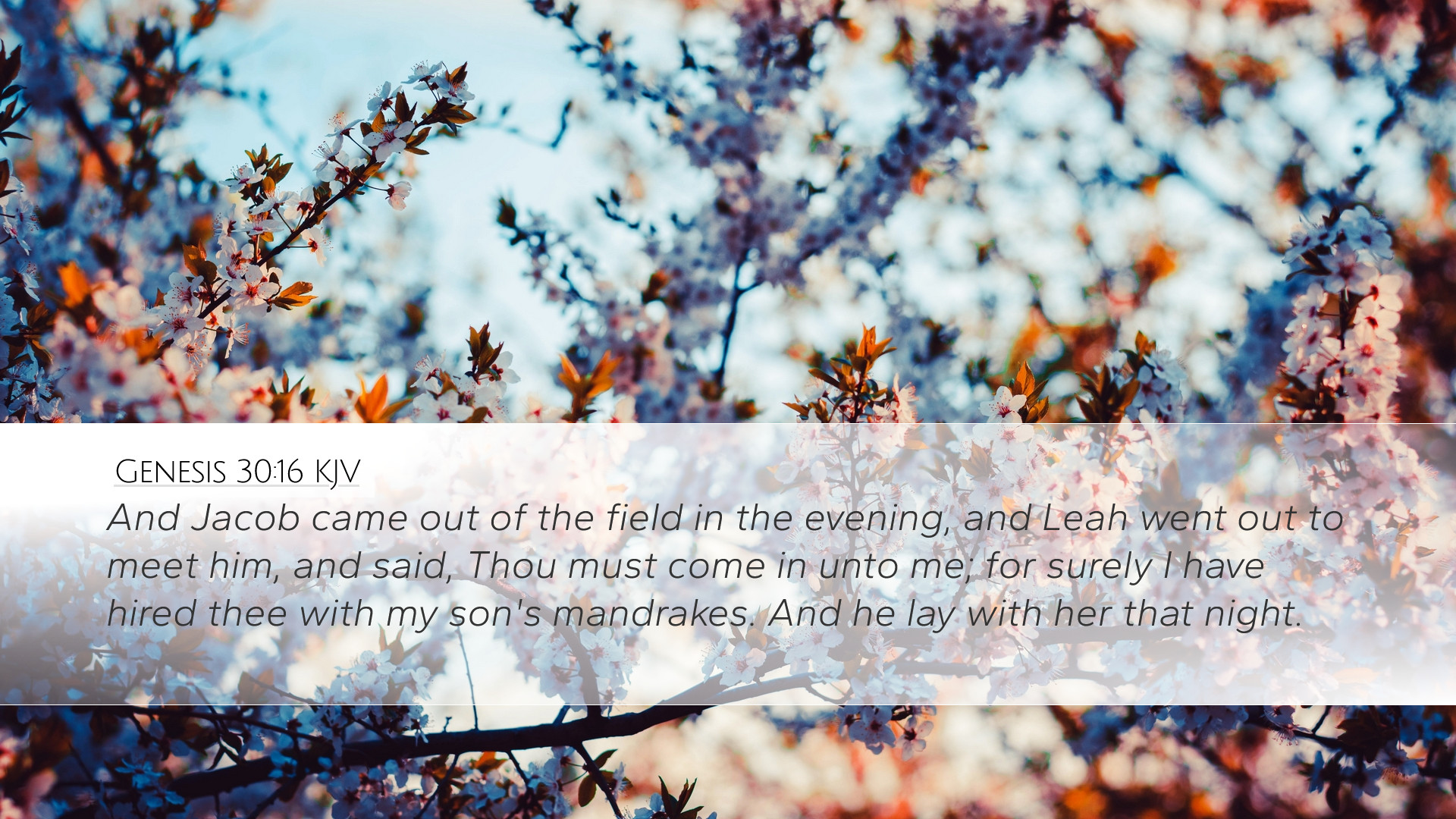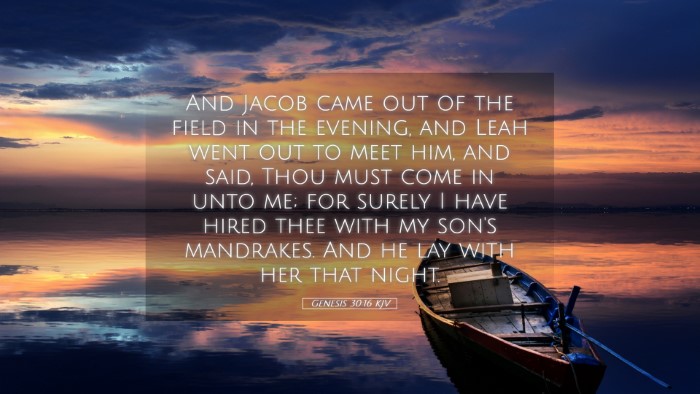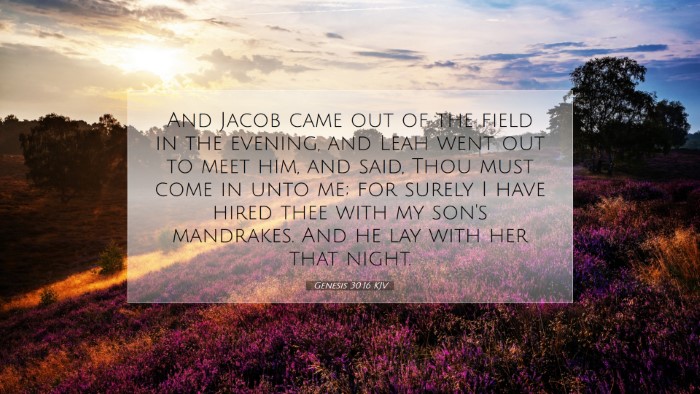Commentary on Genesis 30:16
Verse Context: Genesis 30:16 states, "When Jacob came out of the field in the evening, Leah went out to meet him, and said, 'You must come in to me, for I have hired you with my son’s mandrakes.' And he lay with her that night."
Overview
This verse captures a complex interaction filled with themes of desire, rivalry, and the human condition. It is essential to unpack this narrative within the larger context of Jacob's family dynamics and the cultural significance of mandrakes, as explored by various scholars.
Insights from Public Domain Commentaries
Matthew Henry’s Commentary
Henry focuses on the relational tensions within Jacob's family, particularly between Leah and Rachel. He notes the desperate lengths to which Leah goes to ensure Jacob's attention, highlighting the tumultuous emotional landscape of their marriages. Leah's use of mandrakes—which were believed to enhance fertility—illustrates her yearning for Jacob’s love and the societal pressures surrounding childbearing.
Albert Barnes’ Notes
Barnes emphasizes the significance of the mandrakes, pointing out their mythical reputation in ancient cultures. He explains that Leah's proposition was not merely transactional but a reflection of her deep-seated insecurity and her rivalry with Rachel. The act of 'hiring' Jacob underlines the shifting dynamics of marital love in a polygamous context, where affection becomes entangled with strategy.
Adam Clarke’s Commentary
Clarke provides a theological lens, interpreting this passage as a depiction of spiritual blindness. He argues that Leah's pursuit of Jacob through mandrakes symbolizes humanity's often misguided efforts to attain love and fulfillment through worldly means. Clarke's insight pushes the reader to reflect on their own pursuits for approval and affection, urging a return to divine providence rather than human stratagems.
Thematic Analysis
-
Desire and Rivalry:
The competition between Leah and Rachel serves as a core narrative thread. Each woman’s actions stem from a desire to secure Jacob’s love and ensure their legacy through children.
-
The Role of Children in Identity:
The importance of children in ancient Israelite culture is evident. Leah's efforts to bear sons are intertwined with her sense of worth, a theme still prevalent in discussions about identity today.
-
Human Strategies vs. Divine Will:
Barnes and Clarke echo the sentiment that humanity's strategies often stand in stark contrast to God's providential plans. This calls for introspection on how believers engage with their desires versus reliance on God’s timing.
-
Cultural Significance of Mandrakes:
Mandrakes historically symbolize fertility. Their mention here points to the culturally pervasive beliefs that often influenced personal and family decisions in biblical narratives.
Application for Modern Readers
For pastors and theologians, this passage encourages deep engagement with the emotional and ethical complexities of human relationships. It invites congregants to examine contemporary narratives of desire and fulfillment. Scholars can draw parallels between Jacob's family dynamics and today’s relational conflicts, providing a framework for practical application in counseling and teaching.
Conclusion
Genesis 30:16 invites the reader to consider the intersection of desire, rivalry, and divine purpose. The insights from public domain commentaries showcase the layers of meaning woven into this brief verse, reminding us of the challenges of human relationships throughout history. The theological implications call for humility in recognizing our need for God's guidance over our own efforts.


